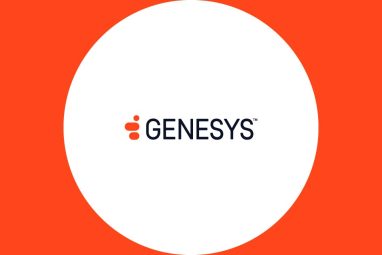Corvic AI Lands $12M to Develop Cognitive AI for Enterprises
Corvic AI’s Cognitive Infrastructure unifies siloed capabilities into a single, cohesive reasoning system.
Topics

Corvic AI, the company transforming secure and scalable generative AI adoption for enterprises, announced it has raised $12 million in seed funding led by M Ventures and Bosch Ventures, with participation from Foothill Ventures, Lam Capital, LDV Partners, K2 Access Fund and Brian Long (Atlantic Bridge).
Corvic AI is enhancing Data-Centric AI Cognitive Infrastructure and transforming proprietary enterprise data into actionable intelligence for high-stakes decision-making. This technology fundamentally reshapes how enterprises leverage complex data in the era of generative AI — producing trustworthy, verifiable intelligence at scale with unmatched depth and precision.
Enterprises are rushing to adopt generative AI, but most remain stuck in the prototyping phase — struggling to turn pilot projects into real business impact. The core issue? Enterprise data is complex, and the infrastructure needed to make LLMs work is incredibly difficult to build.
As a result, enterprises waste time and resources stitching together incompatible solutions — leading to generative AI applications that hallucinate, fail to scale, and fall short of delivering trustworthy enterprise-grade intelligence.
Corvic AI’s foundational cognitive infrastructure goes beyond simple retrieval, intelligently orchestrating multi-step advanced analytics to deliver accurate and explainable answers across complex enterprise data. Corvic AI’s purpose-built Mixture of Spaces™ (MoS) and Adaptive Chain of Actions™ (ACoA) technologies bridge the gap between siloed proprietary enterprise data and large language models (LLMs), solving a key enterprise AI bottleneck.
ALSO READ: AI to Transform Customer Service, Predicts APAC Report
Mixture of Spaces (MoS) processes data in its native forms — tabular, relational, text, image, and time series by leveraging inherent signals based on format and structure. This, along with Adaptive Chain of Actions (ACoA), intelligently navigates various data representations (“spaces”) with the right tools using Corvic AI’s Agentic Function Calling™ (AFC) architecture, enabling dynamic, context-aware insights generation.
This approach enhances data fidelity and integration, dramatically increasing the success rate of AI adoption in enterprise settings. With auditability and governance built in, Corvic AI’s ACoA ensures its customers can trust AI-powered intelligence in high-stakes environments.
This architecture is purpose-built to address today’s fragmented AI landscape, where tools such as vector databases, retrieval-augmented generation (RAG), graph AI, and generative models operate in isolation, forcing enterprises to stitch together incompatible solutions. This fragmented approach often produces AI-generated outputs that lack factual grounding, making them unreliable for enterprise use.
Corvic AI’s Cognitive Infrastructure unifies siloed capabilities into a single, cohesive reasoning system — eliminating inefficiencies, streamlining workflows, and adapting to ever-evolving data environments. Additionally, its plug-and-play integration seamlessly connects with existing enterprise ecosystems, accelerating AI adoption without disrupting current workflows.
Co-founded by Farshid Sabet (CEO), Dr. Donald Nguyen (CTO) and Dr. Gurbinder Gill (CPO), Corvic AI draws on over a decade of its founders’ experience at Intel, Determined AI, Movidius, Katana Graph, and academia, spanning their expertise in deep learning, graph analytics, distributed machine learning, and enterprise infrastructure to deliver enterprise-grade products.
ALSO READ: CallMiner Collaborates With Microsoft To Enhance AI Capabilities
“Enterprise AI remains fragmented — companies struggle to connect and reason across unstructured reports, databases, and dynamic real-world inputs, making it difficult to align institutional knowledge with LLMs and generate reliable results,” said Farshid Sabet, co-founder and CEO of Corvic AI.
“Today, enterprises are forced to stitch together disconnected AI models and tools just to get partial answers, leading to inefficiencies and critical gaps in data pipelines. Instead of reinventing models, we focus on elevating complex, proprietary data into AI-ready data — making it more digestible and actionable for LLMs. Corvic AI is defining the missing layer in enterprise AI: end-to-end AI Cognitive Infrastructure that powers generative AI applications at scale.”
“In today’s industrial landscape, the true potential of AI is often bottlenecked by the complexity of enterprise data ecosystems,” said Ilja Aizenberg, principal at M Ventures. “Real-world AI applications must navigate intricate data landscapes where critical information is dispersed across various formats and modalities — from relational databases to unstructured documents and images.”
“Corvic’s AI Cognitive Infrastructure enables structured reasoning and precise intelligence extraction from complex data environments. This approach augments decision-making capabilities and uncovers strategic insights from previously untapped data sources. For industries adopting this advanced AI infrastructure, the potential for significant operational and strategic improvements is substantial.”
“Corvic AI’s outstanding performance during the Open Bosch GenAI Challenge 2024 demonstrated both the effectiveness of their solution and a clear understanding of enterprise needs,” said Ingo Ramesohl, managing director at Bosch Ventures. “We see strong potential in their platform and are looking forward to supporting their growth as they continue to deliver scalable, trustworthy solutions.”
Corvic AI’s Data-Centric AI Cognitive Infrastructure is already being evaluated and integrated by numerous leading companies across critical sectors, including advanced manufacturing, industrial, financial services and life sciences — where accuracy and reliability are non-negotiable.
Enterprises partner with Corvic AI to unlock powerful applications such as domain expert agents, where various RAG approaches fall short, as well as generative business intelligence (BI), automated complex analytical processes, and a range of predictive analytics use cases.
ALSO READ: Forethought Launches Voice









































































































